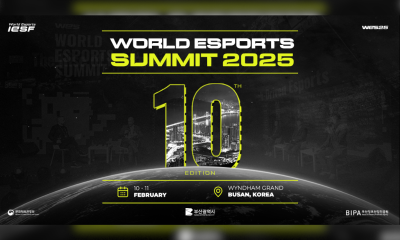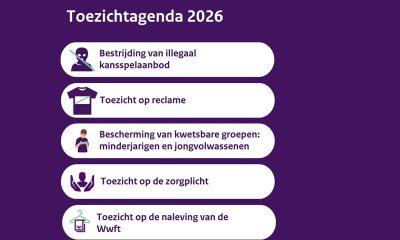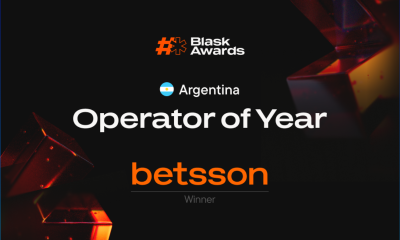Latest News
Sorare raises a €40m Series A from Benchmark and Accel Partners to help fans own their football passion online
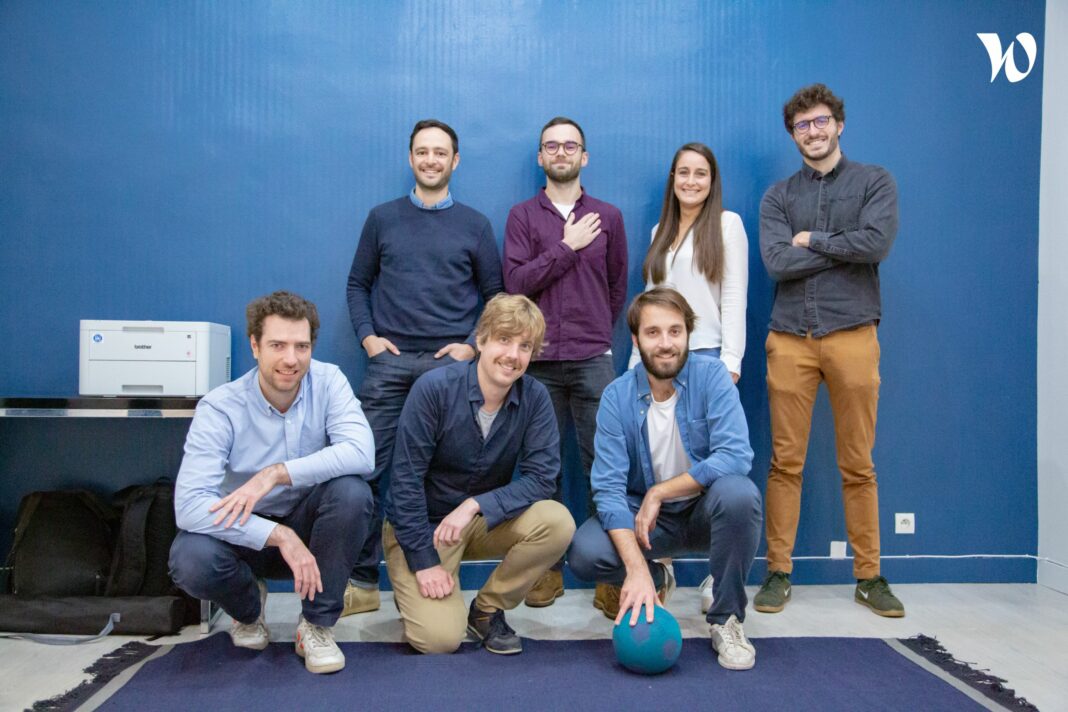
Sorare, the digital collectible football platform, announces that it has received €40 million in Series A financing, led by Benchmark, with additional funding from Accel and new business angels. The angels include Reddit co-founder Alexis Ohanian, Vaynermedia CEO Gary Vaynerchuk, football players Antoine Griezmann and Rio Ferdinand. The financing brings Sorare’s total funding to €48 million. The capital will be used to fuel the growth of the community, accelerate the hiring of a world-class team and launch a mobile application.
Fantastically real collectibles
Football is a common denominator for more than 4 billion people globally but today, fans feel further away from the game they love than ever before. As we spend more time online, the need for connection has significantly shifted to digital experiences. Sports card collectibles have long helped fans celebrate their love of the game, and now they can experience a whole new world online. Sorare is leading the new era of online football fandom, where fans can live football moments and true connections like never before.
The company’s mission is to build “the game within the game” and to give fans the platform to celebrate, share and own their football passion. Through tradable digital cards, Sorare is designing a collective fantasy football experience where you can manage your favorite players and hone your passion to earn prizes. Anyone, anywhere, can connect with the beautiful game on Sorare.
Growing across the globe
The company, which is already profitable, has experienced an explosive 52% month-on-month growth over the past 12 months, going from €50K worth of cards traded on the platform in January 2020 to €3.5M in January 2021 across 120 countries.
More than 120 football clubs have launched their digital cards on Sorare, with all European Champions actively participating in the growth of the game. Partnerships with Liverpool, Paris Saint-Germain, Bayern Munich, Real Madrid and Juventus make Sorare the first digital collectible platform to offer cards from Europe’s top five league champions. The company’s ambition is to onboard the top 20 football leagues globally. This next-generation gaming experience allows leagues and clubs to expand their international brand by reaching an untapped audience of fans. Sorare is effectively opening up a new traceable and sustainable revenue stream for them.
Crypto’s next consumer application
Sorare collectibles are backed by blockchain technology to provide transparency and portability into other games. More importantly, the blockchain Ethereum enables the act of collecting in the digital space by creating digital scarcity through “non-fungible tokens” (NFT). It secures the passion of fans and creates a new level of trust and freedom for gamers who can freely trade their assets over the internet.
Sorare joins the ranks of culturally impactful companies and innovative brands in the Benchmark and Accel portfolio, including Twitter, Snap, Instagram and Spotify.
Nicolas Julia, CEO at Sorare explained: “Sorare was born from our love for football. We’re building a gaming experience fueled by passion where fans can connect with football and a global community. On Sorare, they can truly own the game. Today is a watershed moment – both for Sorare as a company and for our community – that will enable us to touch new markets and radically improve our product to become the game within the beautiful game.”
Peter Fenton, General Partner at Benchmark commented: “We’re thrilled to partner with Sorare as their lead Series A investor. The company combines the global passion for football collectibles with the excitement of real-world play in fantasy league tournaments. The founders early work in blockchain technology gave them the unique insight into a killer application for a new NFT – real players in real games creating enduring value for a digital artifact. Their explosive growth codifies the utility of these technologies in everyday life.”
Andrei Brasoveanu, Partner at Accel added: “Sitting at the intersection of fantasy football and sports collectibles, Sorare is revolutionizing the way fans across the world engage with and enjoy sports. In just a year, Sorare has built an incredible viral community and secured partnerships with more than 130 football clubs, including five European Champions. This impressive growth is a testament to the ambition and determination of Nicolas, Adrien and the entire Sorare team. We’re excited to join Sorare on the next stage of their journey and help build the leading digital sports collectibles platform worldwide!”
Christian Miele, Partner at e.ventures, commented: “We have been impressed by Nicolas’ and Adrien’s vision from day one. For the first time in human history a digital collectible holds a utility and can be used in a wide field of applications to attract soccer fanatics, collectors, and investors alike. This is why Sorare is best positioned to create one of the largest next-generation entertainment companies in the world.”
Gerard Piqué, Strategic Advisor at Sorare, explained: “As world football has shifted from local supporters to global fanbases, football fans are looking for new ways to be connected to the game, the players and other fans. Nicolas and the team have a unique gaming experience with real-world impact, bringing fantasy to reality. I’m looking forward to helping the team and the Sorare community connect with more football clubs and leagues.”
Sia Houchangnia, Partner at Seedcamp, concluded: “Sorare is a truly category-defining company and has the potential to become one of the biggest consumer tech success stories out of Europe. In less than 2 years since our pre-seed investment, the Sorare team has built from scratch a complex economy within an incredibly compelling game. Most importantly, Sorare can count on one of the most vibrant communities of early adopters we’ve ever seen. The growth has been astonishing and there’s an entire ecosystem of games and content being built around Sorare’s football cards. This is one of the most exciting businesses we’ve had the chance to work with and we are incredibly excited to have Benchmark and Accel joining the journey.”
Powered by WPeMatico
Champions League
Flashscore reveals data behind thrilling night of Champions League action

New data from Flashscore, the world’s leading platform for live scores and sports content, reveals that almost 34,000,000 users tuned in yesterday for one of the most dramatic nights in UEFA Champions League history.
The intensity of the matches generated a massive wave of digital engagement, with 18 matches all taking place at the same time on the final day of the league format.
From the football-mad streets of Brazil to the frozen research stations of Antarctica, fans across 239 countries and territories checked their phones as Benfica’s goalkeeper scored a 98th-minute header and Real Madrid crashed into the playoffs.
Martin Matejka, Marketing Director of Flashscore, said: “Yesterday wasn’t just a matchday; it was a global event and we were well prepared. When game-changing moments decide matches – from a goalkeeper’s stoppage-time header against Real Madrid to last-minute winners across Europe – the world doesn’t just watch, it reacts. Flashscore sent out over 700 million push notifications to our users as drama unfolded across the continent.
“Our data shows unprecedented engagement from all over the world, and I am glad we could bring these extraordinary moments to fans from Brazil to Antarctica.”
TOP MATCHES ranked by number of users
The drama at the Estádio da Luz dominated the global conversation, with nearly 10 million users following the Benfica-Madrid clash alone.
1 Benfica vs. Real Madrid (9,7M users): The undisputed main event. Fans flocked to the match detail as Benfica goalkeeper Anatoliy Trubin scored a historic 98th-minute header to seal a 4-2 win, sending Real Madrid to the playoffs.
2 Barcelona vs. FC Copenhagen (8,3M users): Massive interest as Barcelona thrashed the Danes 4-1 to secure direct qualification to the Round of 16.
3 Napoli vs. Chelsea (5,9M users): A rollercoaster in Naples. Chelsea fought back to win 3-2, eliminating Napoli despite a stunning “Maradona-esque” pirouette goal from Antonio Vergara.
TOP PLAYERS ranked by number of users
1. Jorginho (995K users): The Kairat Almaty midfielder trended globally after scoring a penalty against his former club, Arsenal, at the Emirates Stadium—a major talking point that drove nearly 1 million profile views.
2. Anatoliy Trubin (725K users): The unlikeliest hero. The Benfica goalkeeper’s stoppage-time header against Real Madrid sent his profile traffic into the stratosphere.
3. Andreas Schjelderup (368K users): The 21-year-old Norwegian announced himself to the world with a brace against Real Madrid.
4. Kylian Mbappé (317K users): Even in defeat, the superstar commanded attention and ranked 4th. He scored twice for Madrid, but his team’s collapse was the bigger story.
TOP TEAMS ranking by users:
1. Real Madrid (1,6M users): The “Kings of Europe” falling into the playoff round after a chaotic 4-2 loss drove massive traffic.
2. Benfica (1,1M users): The victors of the night. Their miraculous comeback and “goalkeeper goal” made them the second most-clicked team worldwide.
3. Barcelona (930K users): Solid interest as they cruised to victory and the next round.
Flashscore Global Reach
While Brazil was the single most active nation, the traffic was evenly split across continents: In Europe the huge engagement was driven by fans in Italy, France, Poland, United Kingdom, Spain, Portugal, and Germany.
Africa’s continent showed massive interest, led by Nigeria, Ghana, and Ivory Coast. Football fever also swept across Asia, with significant user numbers from Indonesia, Kazakhstan, South Korea, and Uzbekistan.
The obsession reached the most remote corners of the Earth. Flashscore recorded active users from Antarctica and Christmas Island, proving that even in the most isolated locations, fans refused to miss the drama.
The post Flashscore reveals data behind thrilling night of Champions League action appeared first on Eastern European Gaming | Global iGaming & Tech Intelligence Hub.
Claire Osborne Managing Director of Interactive at Inspired Entertainment
Two new slots from Inspired — Coin Inferno Step ‘N’ Stack™ and Mummy It Up™
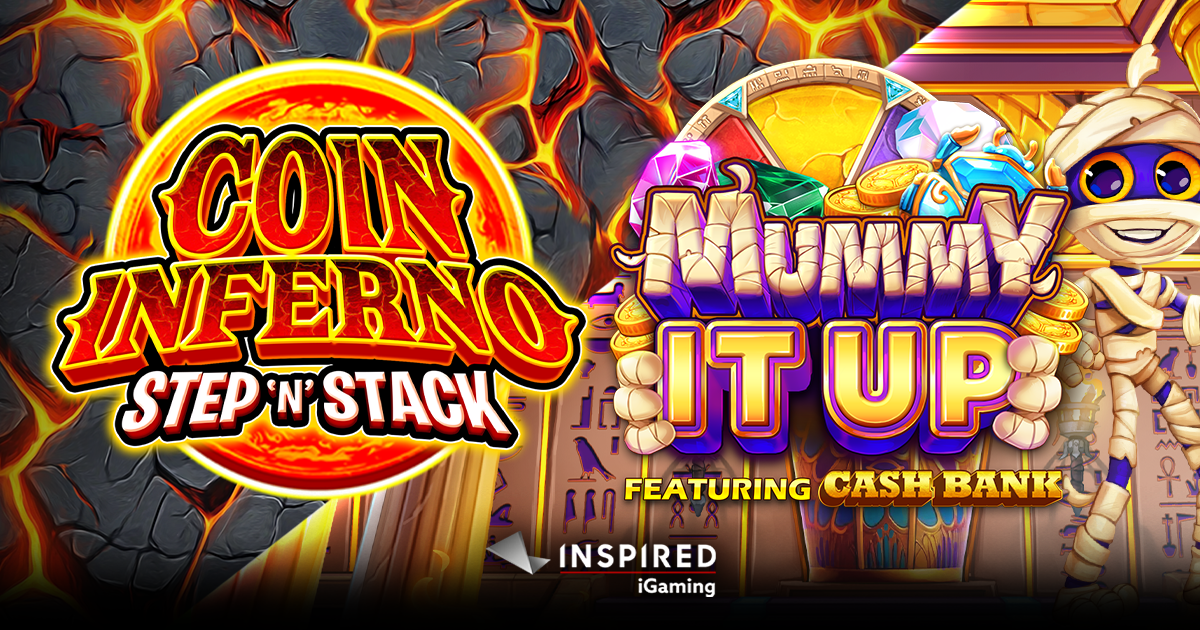
Inspired Entertainment, Inc. is thrilled to unveil the release of two entertaining online and mobile slots: Coin Inferno Step ‘N’ Stack and Mummy It Up
and Mummy It Up , in the UK and Maltese iGaming markets.
, in the UK and Maltese iGaming markets.
Inspired is excited to unveil the release of their new two slot games, broadening the popular Cash Bank series.
Coin Inferno Step ’N’ Stack introduces a fiery twist to traditional slot gameplay with a 3×3 reel setup, five heated win-lines, and casino-themed symbols amidst a background of a raging sea of flames. Central to the base game are Cash Collector symbols that gather visible cash values, generating excitement and forming a pseudo-progressive coin stack that remains on the reels, amplifying the thrill with each spin. The thrill intensifies with the Win & Spin Bonus, where locked collectors, expanding reel rows, and resettable spins merge to form an exhilarating, continually escalating chase for hot cash prizes. For gamers seeking greater control and increased volatility, Fortune Spins, Fortune Bet, Gamble, and Bonus Buy choices offer exciting opportunities to intensify the action and pursue potentially larger payouts.
Mummy It Up with Cash Bank immerses players in a realm of ancient Egyptian magnificence, showcasing glimmering gold and timeless enigma. Nestled within opulent palaces embellished with scarabs, favorable beings, and treasures fit for Pharaohs, each spin ignites a spirit of exploration and the quest for exhilarating Cash Bank victories. The game expands its well-liked Cash Collection features through Cash Bank Free Spins, pseudo-persistence Scarab collections, and a Wheel Bonus Game that can grant free spins, bonus entry, or access to one of four shining Prize Pots: Mini, Minor, Major, or Grand. The game is additionally improved with enjoyable character reel modifiers and customizable gameplay features like Fortune Spins, Fortune Bet, Bonus Buy, and Gamble choices.
Claire Osborne, Managing Director of Interactive at Inspired Entertainment, said: “Inspired is starting 2026 with strong momentum, and these two launches set the tone for the year ahead. Coin Inferno Step ’N’ Stack and Mummy It Up both deliver fun and big win excitement for players, while supporting sustained player engagement and strong performance for operators. With a roadmap packed full of exciting new content, Inspired is well positioned to drive continued growth across the iGaming landscape.”
The post Two new slots from Inspired — Coin Inferno Step ‘N’ Stack™ and Mummy It Up™ appeared first on Eastern European Gaming | Global iGaming & Tech Intelligence Hub.
ELA Games
Following ICE 2026 Triumph, ELA Games Officially Releases “Wealth of the East”

ELA Games is excited to announce the official B2B launch of Wealth of the East. The game, now accessible to partners, was initially introduced to the industry as the studio’s highlight during the three-day event in Barcelona, where it attracted the attention of numerous operators and aggregators because of its unique combination of slot mechanics and tabletop gaming.
The unique unveiling at ICE turned out to be a significant triumph, paving the way for the complete rollout. The ELA Games exhibit gathered industry representatives to engage with the game’s distinctive selling proposition: a twenty-sided Dice (D20) element that adds a tactile, physical sensation to digital slot gaming.
A Festivity of Wealth
The reels of Wealth of the East sparkle with the vibrant essence of an Eastern celebration. The gameplay is centered around the charming figure God Fu, a god of wealth serving as the Wild symbol in the game. He may arrive at any moment, and when he shows up, all Dice on the display spring to life, uncovering multipliers that enhance every coin visible or activate instant Jackpots. These empowered coins provide instant payouts, rewarding players as soon as they appear.
Sparking the Hold & Win Safe
The game showcases a visually impressive progression system crafted to uphold the festive theme and decorated with vibrant reds and golds. Every gathered coin also flies upward into the Golden Pot located above the reels, gradually enriching it with festive treasure that players can see and experience.
As the pot overflows, the screen bursts into red and gold as the Hold & Win game starts. Players receive 3 respins and a setup prepared to collect gold. In this intense feature, the elusive Imperial Lotus can appear, boosting multiple rewards simultaneously and elevating the entire round to new levels.
Game Stats:
● Reels: 5×3
● Lines: 10
● Max Win: x5,000
● Max Exposure: €250,000
● Buy Bonus: Yes
● Volatility: Mid
● RTP: 93.97% / 96.06%
Marharyta Yerina, Managing Director of ELA Games, commented: “Wealth of the East was the perfect title for us to showcase at ICE 2026. We took the classic t’Eastern Celebration’ theme and gave it a distinct twist with the God Fu character and his twenty-sided dice. It adds an original, tactile layer of excitement that players really respond to. The ‘Rising Pot’ visualizes the journey toward the bonus, keeping the excitement building spin after spin. We can’t wait for the industry to see the celebration in action.”
The post Following ICE 2026 Triumph, ELA Games Officially Releases “Wealth of the East” appeared first on Eastern European Gaming | Global iGaming & Tech Intelligence Hub.
-
Latest News6 days ago
N1 Partners Hosts the N1 Puzzle Promo Grand Final and Reveals the Helicopter Winner at iGB Affiliate 2026 in Barcelona
-

 Games Global6 days ago
Games Global6 days agoGames Global and Stormcraft Studios extend the supernatural franchise with Immortal Romance: Sarah’s Secret Power Combo
-

 Amusnet6 days ago
Amusnet6 days agoWeek 4/2026 slot games releases
-

 AFCON 20257 days ago
AFCON 20257 days agoAFCON’s month of football did not lift iGaming demand — Blask data analysis
-

 Asia7 days ago
Asia7 days agoWorld Esports Summit Celebrates Its 10th Edition in Busan
-

 affiliate marketing6 days ago
affiliate marketing6 days agoN1 Partners Hosts the N1 Puzzle Promo Grand Final and Reveals the Helicopter Winner at iGB Affiliate 2026 in Barcelona
-

 Compliance Updates6 days ago
Compliance Updates6 days agoDutch Regulator Outlines 5 Key Supervisory Priorities for 2026 Agenda
-

 BetPlay3 days ago
BetPlay3 days agoBlask Awards 2025: Betano, Caliente, BetPlay, Betsson and others define Latin America’s iGaming landscape










